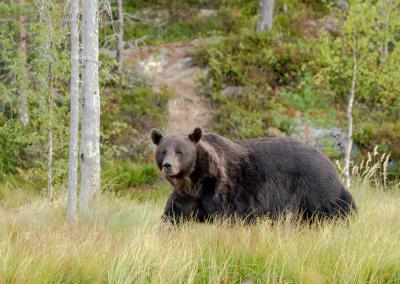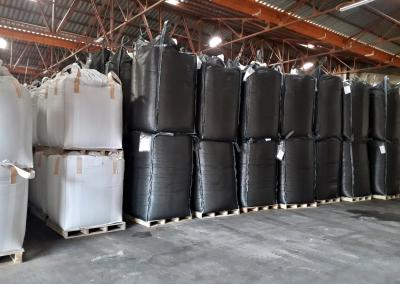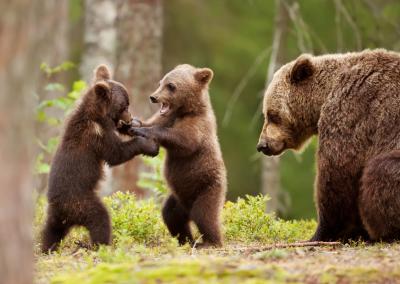Sale of brown bear meat authorised in Slovakia
With the backing of the populist government, it will soon be possible to buy the meat of brown bears, which are protected in the European Union (EU), in Slovakia, the BBC reports.
Last month, the cabinet of ministers approved a plan to shoot around a quarter of the country's 1,300 brown bears. The decision was made in response to recent deadly human encounters with the beasts.
The decision has been criticised by conservationists and opposition politicians. In the European Union, brown bears are considered an endangered species. However, the Slovak government is pressing ahead with its plan and announced this week that the meat of shot bears will be sold to the public to avoid waste. From next week, organisations under the Ministry of the Environment can offer the meat for sale, as long as all legal and hygiene conditions are respected. Minister of State Filip Kuffa said that until now, poached animals were disposed of in carcass disposal facilities, but that this was wasteful because „bear meat is edible“.
Bears have become a political problem in Slovakia, with an increase in bear-human encounters, some of which have resulted in human deaths. Slovakia ranks second in Europe after Romania in the number of attacks, with an estimated 13,000 brown bears.
The country reported 54 bear attacks in 2000–2020. The average number of attacks per year has also risen to 10. In April, a man was fatally injured while walking in a forest in central Slovakia. Shortly afterwards, Prime Minister Robert Fico said: "We cannot live in a country where people are afraid to go into the woods". He said that the government had decided that up to 350 brown bears would be shot – this is equivalent to the population of these animals in Spain.
The government claims that an overabundance of bears has led to the attacks. But environmental groups and critics say the focus should be on prevention. Brown bears are strictly protected under EU directives and can only be removed in exceptional circumstances, such as threats to public safety, when there are no other alternatives.
European bear meat is not a common food in Europe and is only considered a delicacy in some regions, such as parts of Eastern Europe and the Nordic countries. In most EU countries, strict hunting regulations and protected species status mean that bear meat is rarely available, not served in restaurants and not sold in shops.
Where bear meat is eaten, health officials warn of the dangers of trichinae, parasites that can cause serious illness in humans. To destroy these parasites, the internal cooking temperature must be at least 70 degrees Celsius. Freezing, smoking or drying meat does not make it safe.















































































































